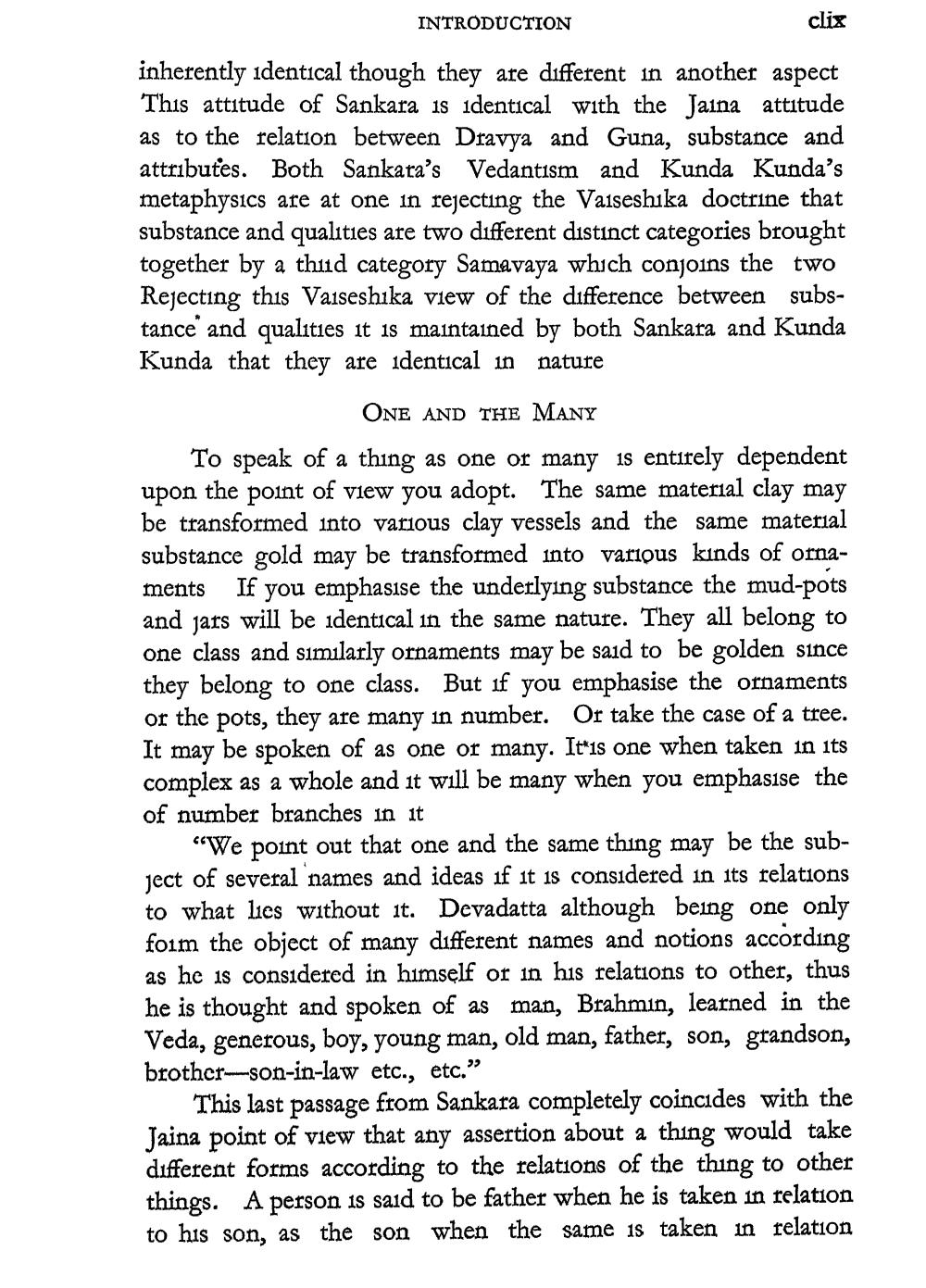________________
INTRODUCTION
clix
inherently identical though they are different in another aspect This attitude of Sankara is identical with the Jaina attitude as to the relation between Dravya and Guna, substance and attributes. Both Sankara's Vedantism and Kunda Kunda's metaphysics are at one in rejecting the Vaiseshika doctrine that substance and qualities are two different distinct categories brought together by a third category Samavaya which conjoins the two Rejecting this Vaiseshika view of the difference between substance and qualities it is maintained by both Sankara and Kunda Kunda that they are identical in
nature
ONE AND THE MANY
To speak of a thing as one or many is entirely dependent upon the point of view you adopt. The same material clay may be transformed into various clay vessels and the same material substance gold may be transformed into various kinds of ornaments If you emphasise the underlying substance the mud-pots and Jars will be identical in the same nature. They all belong to one class and similarly ornaments may be said to be golden since they belong to one class. But if you emphasise the ornaments or the pots, they are many in number. Or take the case of a tree. It may be spoken of as one or many. It is one when taken in its complex as a whole and it will be many when you emphasise the of number branches in it
"We point out that one and the same thing may be the subject of several names and ideas if it is considered in its relations to what lies without it. Devadatta although being one only form the object of many different names and notions according as he is considered in himself or in his relations to other, thus he is thought and spoken of as man, Brahmin, learned in the Veda, generous, boy, young man, old man, father, son, grandson, brother-son-in-law etc., etc."
This last passage from Sankara completely coincides with the Jaina point of view that any assertion about a thing would take different forms according to the relations of the thing to other things. A person is said to be father when he is taken in relation to his son, as the son when the same is taken in relation




